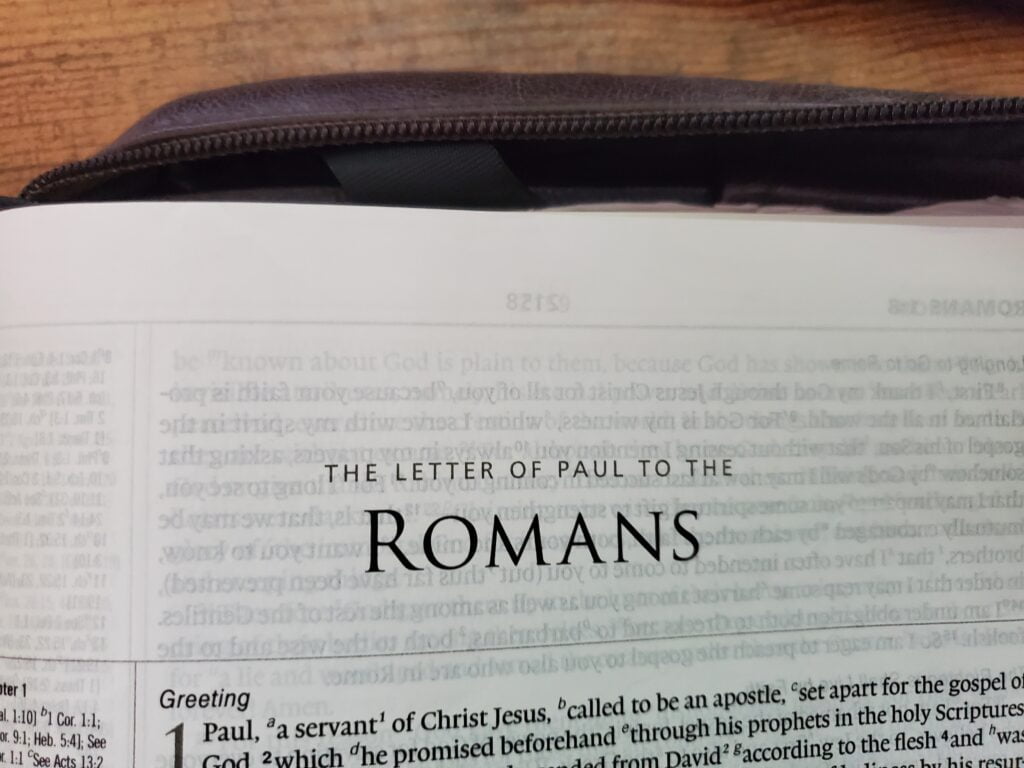⏱️ Estimated Reading Time: 5 min read
Romans 11:30-32, “For just as you were at one time disobedient to God but now have received mercy because of their disobedience, so they too have now been disobedient in order that by the mercy show to you they also may now receive mercy. For God has consigned all to disobedience, that he may have mercy on all.”
In Romans 11, Paul continues his discussion of what will happen to the Jews since most of them have rejected Christ. He has discussed how there is a remnant of believers from among the Jews, how the Gentiles are grafted in due to the Jew’s disobedience, and the great mystery of Israel’s salvation. Romans 11:30-32 is one of the last parts of this discussion and serves as a summary exhortation before the beautiful doxology of Rom. 11:33-36.
The Grand Reversal
Paul describes the grand reversal in this way: “For just as you [Roman Christians] were at one time disobedient to God but now have received mercy because of their [the Jews’] disobedience, so they too have now been disobedient in order that by the mercy shown to you they also may now receive mercy” (Rom. 11:30-31). This demonstrates that a fundamental reordering has happened in how God relates to his covenant people. These Roman Christians were Gentiles and could trace their lineage to Babel. The Tower of Babel represented one of the heights of human arrogance and foolishness: people thought they could be gods. God brought judgment against these peoples through confusing their tongues and, in turn, scattering them throughout the globe. These Roman Christians, probably mostly Gentile, were heirs to this legacy; they were part of the scattered people, not a part of the people of God.
Yet because the Jews disobeyed, rejected the Messiah, murdered the Messiah, and then again rejected the resurrected Messiah, God has decided to give mercy directly to the Gentiles through Christ. The Gentile Christians were able to receive God’s mercy and be brought into God’s people because of the disobedience of God’s covenant people. This shows a Grand Reversal. Salvation and the covenants were no longer only the exclusive property of the Jews; God had greatly expanded his people to include all those from the nations who would believe in Christ.
The Purpose of the Mercy Given to the Gentiles
Paul tells us this is not the act of a fickle God who didn’t like the Jews anymore and decided to try out some other people. No, Paul tells us that this mercy given to the Gentiles is for the express purpose of drawing the Jews into his mercy once again. Elsewhere in Romans 11:11-12 states this principle well: “So I ask, did they [the Jews] stumble in order that they might fall? By no means! Rather through their [the Jews’] trespass salvation has come to the Gentiles, so as to make Israel jealous” (emphasis mine). The purpose of saving the Gentiles was to bring about repentance in the hearts of the Jews. As the Gentiles received mercy, the Jews would see that they have rejected the mercy of God in the Savior, Jesus Christ, and would throw themselves upon Christ in order to receive mercy themselves.
No human being could have conceived of this purpose or this reversal. Only the holy, righteous, covenant-keeping God could. The beauty and breadth of his plan to save his people, both Jew and Gentile, is incredible!
Worship and Salvation History
When we read this passage, it should naturally push us to worship God. This is what these truths did to Paul: the doxology of Rom. 11:33-36 is an expression of praise for the great and complex salvation that God is bringing about in history. When we look at the entire scope of the history of redemption, worship is the appropriate response; we should pray, sing, and give God glory for all He has done. We should honor His sovereignty and providence; we should reverence His holiness and righteousness.
Therefore, in worship, our focus must not be on our feelings or preferences but upon God Almighty. When we realize the depths to which God has gone to save us from our sin, we must offer him praise, even when our feelings and affections are not following. When our worship is based and focused upon our feelings and preferences, we shortchange God. We make light of the fact that “For God has consigned all to disobedience, that he may have mercy on all” (Rom. 11:32).
When we worship, we need always to make sure our hearts and minds are oriented towards the one worthy of praise. Our mouths should sing words of praise for God, and our hearts should have thoughts glorifying God. Our minds should think of things honoring God. And all of this is because of the Grand Reversal that God has worked in salvation and our own lives. We were disobedient, but yet God has shown mercy.




